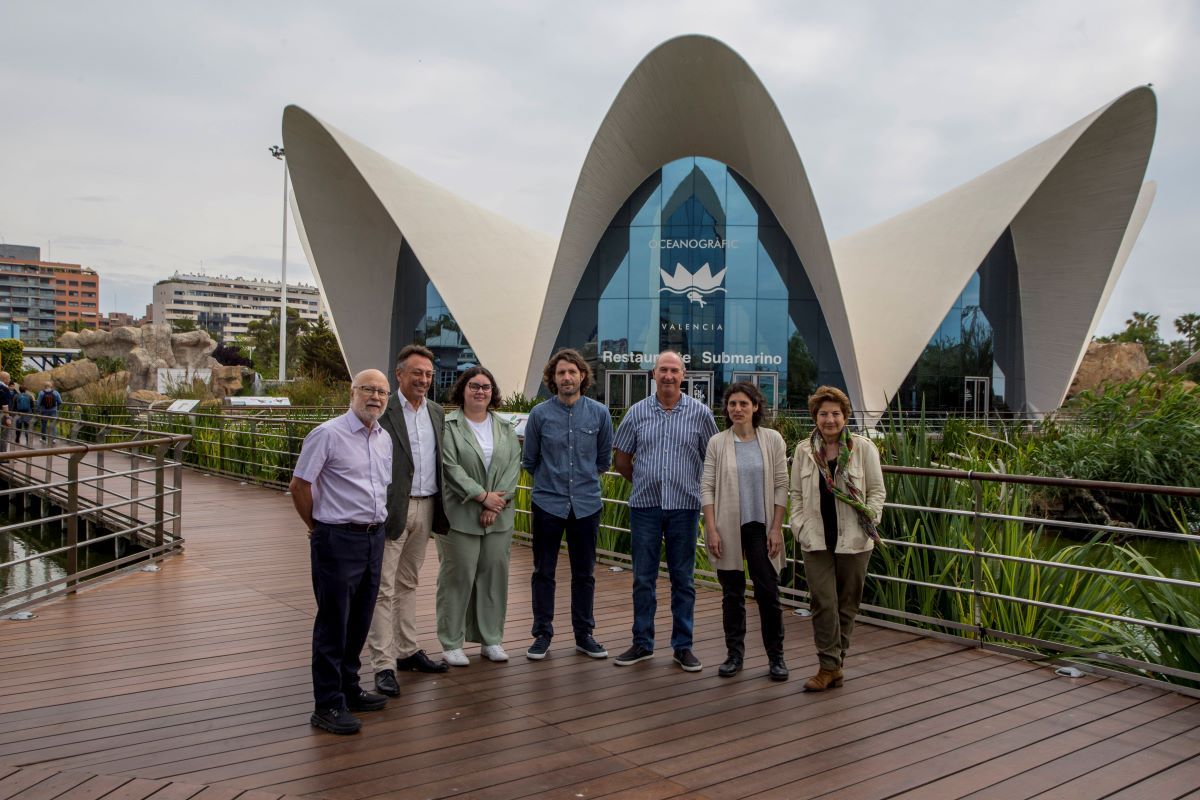as a prelude to «Ocean Festival»the first festival of marine culture, dissemination and sustainable tourism organized by the Oceanographic of ValenciaOn Monday, May 22, a round table was used in which the agents involved in the fishing sector participated: the administration, the fishing sector and science.
Specifically, six people related to each of the three sectors met at the Valencian marine center. In their interventions they highlighted various problems linked to the fishing resource and addressed very specific aspects that can contribute to its sustainability.
Eve galimanyresearcher at the Institut de Ciències del Mar (ICM-CSIC) and the Institut Català de Recerca per a la Governança del Mar (ICATMAR), explained that fishing exists for more than 9,000 yearsbut its impact has grown disproportionately today, so it is convenient to know the problem as well as possible in order to contribute to the solutions.
Among all the projects that this expert is developing, her job consists of collecting data that helps improve fishing practices, in direct collaboration with the Brotherhoods. For example, adequately define the most effective closures, not only temporary, but also spatial or fishing gear; collaborating and never confronting the sector. I end up claiming, like everyone else, more economic resources for science.
carmen rodriguez, responsible for Aquaculture in the General Directorate of Maritime Fisheries of the Principality of Asturias, detailed the activity of the Fisheries Experimentation Center where he works, in Castropol, where they investigate the cultivation of molluscs and echinoderms; very especially, the sea urchin. a species today threatened by the enormous consumptionboth fresh and canned – the well-known “oricio caviar” -.
Your Center has investigated Hedgehog farming for repopulation purposes. And today, in the affected areas, they are already having good results, with an increase in the sizes and density of specimens. Repopulation may not be the solution, but it is one more tool to combine with the ban.
What do the fishermen think?
Maria Maceiras was in charge of offering the vision of fishing professionals. influencer and embarked fisherwoman, explained how he went from being a good student with goals unrelated to fishing, to joining sailing with his partner, also a fisherman. During his work, he used to record on video some of the moments of the work on the high seas. One of those short videos, in which he explained why he returned a lobster with roe to the sea for its procreative capacity, ended up being uploaded to TikTok. In a single day obtained 80,000 reproductions.
Maria has become a influencer in defense of sustainable fishing, using a youthful language to get closer to the new generations. And he has received different awards such as the National Award for Gastronomy Young Food Talent of Spain.
He is also a fisherman amadeu pinkexplained the problem of the sea and its ailments, which he has been studying in his many years of experience Trawling.
Ros assured that the trawl netsInstead of sweeping the bottom of the sea, it must fly many meters above it, thus preventing damage and achieving a more effective fishing and even with a fuel reduction by more than 10%.
Aware that it is important for the survival of the profession, the fishing sector itself is the one that controls itself; today they work 150 days a year, before 200. With more sustainable gear, adapting to the changes that have occurred and taking care of underwater rocks, plants, sessile and mobile communities. Watching the problems of the sea.
more synergies
The veterinarian responsible for the Conservation area in the Oceanographic Foundation, Jose Luis Crespoprovided data and agreed with everyone in the need to give more weight to researchboth basic and experimental, especially in the case of fishing.
As an example of malpractice, he presented the case of sea turtles that are accidentally caught in the fishermen’s nets. When they are delivered, in apparent good condition, to the Foundation oceanographicThey immediately became very seriously ill.
The Oceanogràfic experts, after investigating what was happening, identified that strange syndrome decompressive, different from that usual in human divers. The solution provided is already part, after its scientific publication, of global recovery protocols for these animals. “Investigating is as essential -finished- as disseminating and conserving. Only then will we have sustainable marine activities.”

